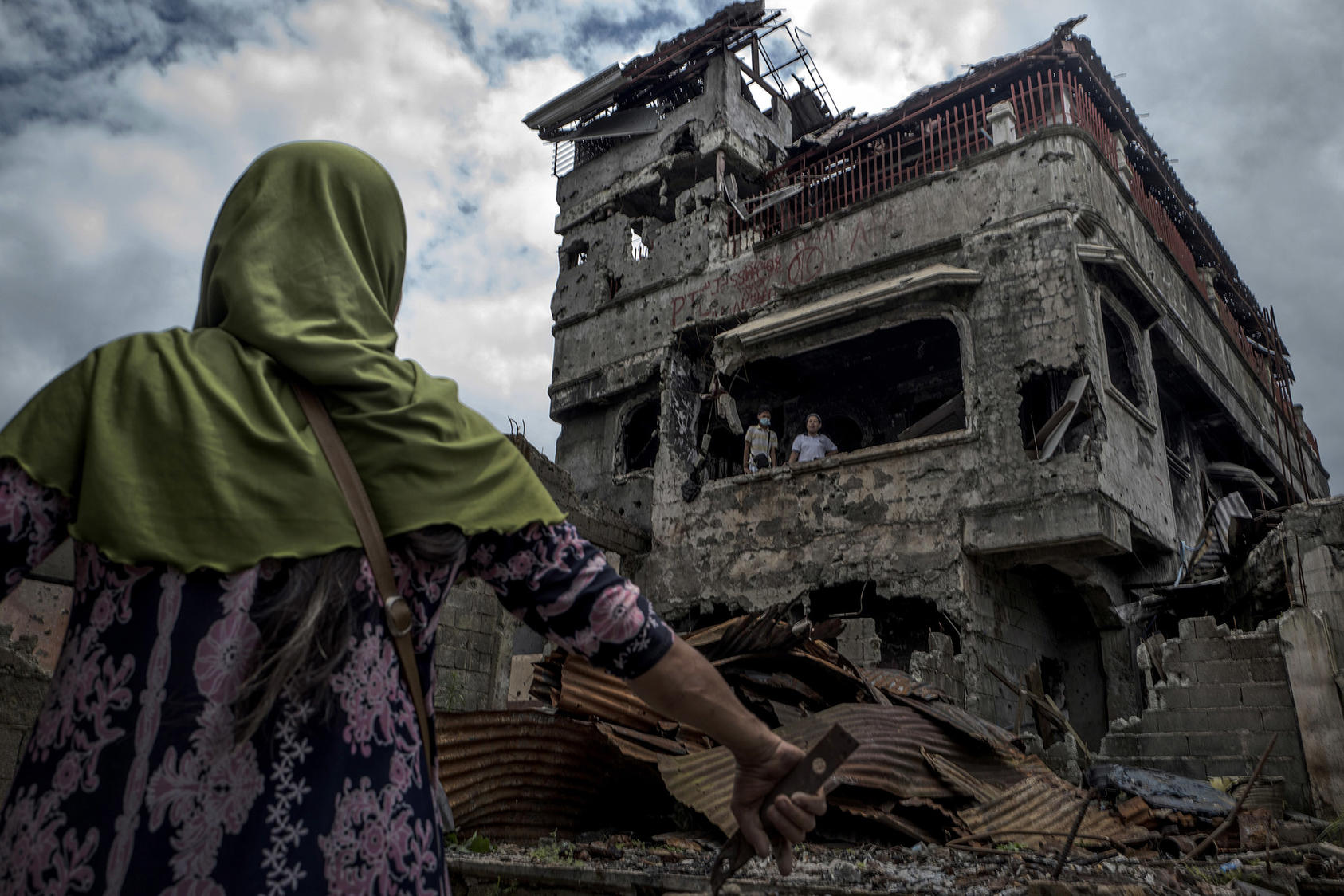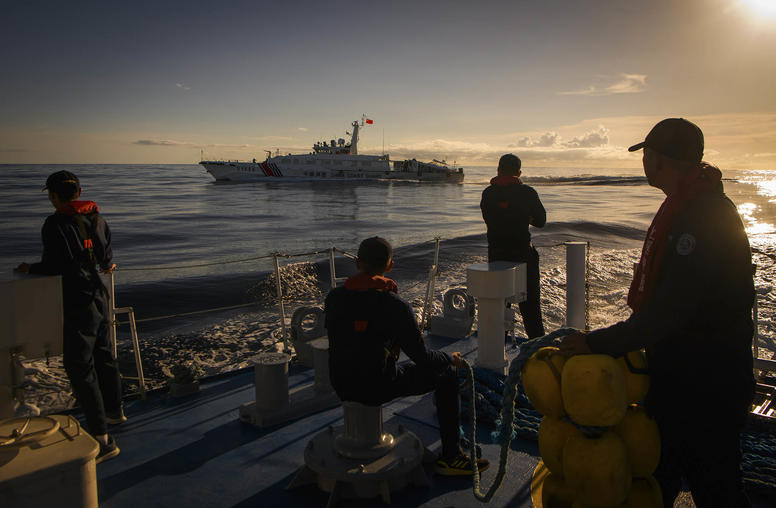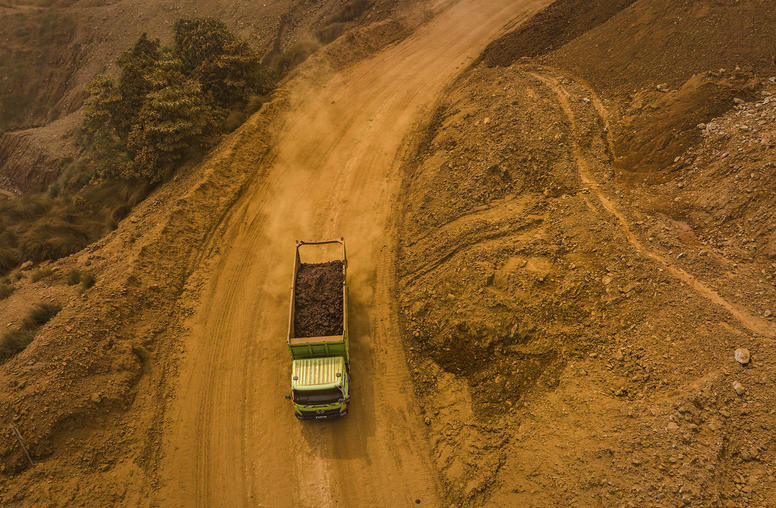Examining Inclusivity in the Southern Philippines
Postponement of elections brings both opportunities as well as challenges for the Bangsamoro Transitional Authority
Editor’s Note: The Bangsamoro Autonomous Region in Muslim Mindanao (BARMM) stretches across the provinces of Lanao del Sur, Maguindanao, Basilan, Sulu and Tawi-Tawi. Within its almost 38,000 square kilometers of territory resides a complex diversity of Bangsamoro tribes, indigenous people and settler communities. In a region where ethno-tribal identities have often been the fault lines for conflict, history weighs heavily on present-day challenges of how to embrace diversity, build a unified Bangsamoro identity and ensure social, economic, political and legal equality for all.
In part two of this USIP editorial series examining the conflict-marred Southern Philippines, Yasmira Moner argues that the Bangsamoro transitional government faces an inclusivity challenge that is a significant obstacle for peace and stability in the newly autonomous region.
One of the key challenges facing the Bangsamoro Transition Authority (BTA) is ensuring that the institutions and laws of the Bangsamoro Autonomous Region in Muslim Mindanao (BARMM) in the Southern Philippines are inclusive of the extraordinary diversity that characterizes its people. The recent extension of the BTA’s mandate, pushing the BARMM’s first elections from May 2022 to May 2025, raises both opportunities and challenges.

On the one hand, the extension affords the BTA more time to implement a truly inclusive and peaceful BARMM. On the other hand, the BTA’s extended mandate is perceived by its critics as anti-democratic due to the continuation of the governing body without a popular mandate. The BTA and its supporters contend that the postponement of the Bangsamoro’s first parliamentary elections was necessary due to the unexpected challenges that the COVID-19 pandemic has wrought on the implementation of the peace process. Nevertheless, critics contend the extension is contrary to the stipulations within the Bangsamoro Organic Law (BOL). The challenge is particularly pronounced for the Moro Islamic Liberation Front (MILF), whose members constitute the majority of the BTA’s ministers, hold the most senior positions in the interim government and are mostly Maguindanaon — which has exacerbated inclusivity concerns among other ethnic groups.
How Inclusive is the MILF-Led BTA?
The BARMM is more than Muslim Mindanao, and it is the responsibility of the BTA to ensure that the region’s diversity is appropriately represented. Everyone must have a seat at the table as stipulated in Article XVI, Section 2 of the BOL. Implementing the spirit of inclusiveness will continue to be tricky, especially in a region mired by problems of injustice, economic marginalization and social exclusion.
During “peace hub” conversations in December 2020 that were facilitated by the Institute for Peace and Development in Mindanao, concerns were raised about the issue of participatory and consultative governance in a predominantly MILF-led BTA. During these discussions, stakeholders stressed the need to understand the social structure underpinning the way Bangsamoro communities engage in politics. Contrary to perceptions that local politics tends to be based on Islam as the common religion, it is clan and ethnic identities that tend to be the dominant political driver. This is most notable in the ethnic tensions between the Tausug-led Moro National Liberation Front (MNLF) and the Maguindanaon-led MILF since the major Bangsamoro movement split in the 1970s. Also, the prevalence of ethnic and cultural stereotypes has meant that minorities too often feel culturally and socially discriminated against by, and dislocated from, political decision-making.
Inclusivity is an important facet of sustainable peace and development. As pointed out by then-Undersecretary Nabil Tan in the Office of the Presidential Adviser on the Peace Process, the BOL is a product of almost two decades of negotiations between the government of the Philippines and the MILF, but the peace process is not just for the MILF. The new Bangsamoro government must be inclusive of all Bangsamoro people and ensure that representatives of indigenous people, Christians, women and youth are present in the government. Until the BARMM’s first elections in 2025, the BTA is responsible for laying these foundations for the region. Inclusivity requires not just representation, but also real access to resources, employment opportunities, educational scholarships and community development programs. These inclusive processes should be put into action amid the increasing threat of violent conflicts brought about by terrorism in the Bangsamoro.
Gender Inclusion and Strengthening Women’s Participation in Governance
While the Philippines is known for its progressive gender laws — it was the first country in Asia to draft a National Action Plan based on U.N. Security Council Resolution 1325 on women, peace and security — meaningful participation of women and girls in formal decision-making processes remains unfulfilled. Women and girls suffer from deeply entrenched discrimination across the BARMM that significantly disadvantages socioeconomic development and fuels further social exclusion in a multigenerational cycle.
These gender disparities have disadvantaged women in parts of the peace process, too. For example, the normalization track under the Comprehensive Agreement on the Bangsamoro (CAB), the final peace agreement signed between the government of the Philippines and the MILF in 2014, is not being implemented equally. In one of my March 2021 conversations with select members of the Bangsamoro Islamic Women’s Auxiliary Brigade (BIWAB) during a visit to their camp in Northwestern Mindanao Front, they lamented about their exclusion from normalization programs and projects that are meant to uplift impoverished MILF communities.
As a BIWAB member explained to me, “We are not just auxiliary forces, we fought alongside our men in our quest for a just and peaceful society where Shariah is recognized as part of our longing for self-determination in accordance with our culture and Islam as a way of life.” The meaningful participation of women in the BARMM is a significant step in addressing the root causes of injustice, exclusionary politics and violent extremism.
A Holistic Approach to Confronting Violent Extremists
It is a welcome development that the Bangsamoro regional government is actively working to realize the “whole-of-society” approach outlined in the National Action Plan on Preventing and Countering Violent Extremism (NAP PCVE). The NAP PCVE is expected to bring about a comprehensive Bangsamoro community resilience framework primarily to prevent another event like the 2017 Marawi siege from happening.
During the first-ever Bangsamoro summit on peace and security held on May 24, 2021, BARMM’s Minister of Interior and Local Government Naguib Sinarimbo underscored the importance of inter-Local Government Unit (LGU) coordination, as well as collaboration between the regional government and the BARMM LGUs, in addressing the actual threats of violence. Priority is being given to the adjoining towns of Shariff Aguak, Pagatin (Datu Saudi Ampatuan), Mamasapano and Shariff Saydona, where the Islamic State-inspired Bangsamoro Islamic Freedom Fighters operate. Just as inclusivity must be a cornerstone of peace efforts, it must also be central to security and stability programs to confront violent extremism.
Making Better Lives for All
The collective aspiration of the Bangsamoro people is to finally achieve peace and enjoy the benefits of the peace dividend. Achieving peace will take systemic, comprehensive, inclusive and gender-fair policies, especially given the immense impacts of the COVID-19 pandemic. Ultimately, the extended period of the BTA is a necessary mechanism to increase the probability of achieving the goal of inclusive institutions that strengthen women’s participation in governance, address peace and security threats and respectfully bring together the diverse people of the BARMM.
There is much to be done in building inclusive institutions that will respect all faiths and ethnicities in the spirit of a healthy democracy. After all, an inclusive BARMM has a better chance of achieving sustainable peace because all people will have protections under the law, access to institutions and the opportunity to meaningfully participate in the social, economic and political life of the region. It is these nonviolent ways to be heard and participate that are our best hope for a lasting peace.
Yasmira Moner is the acting director of the Institute for Peace and Development in Mindanao at Mindanao State University – Iligan Institute of Technology.



